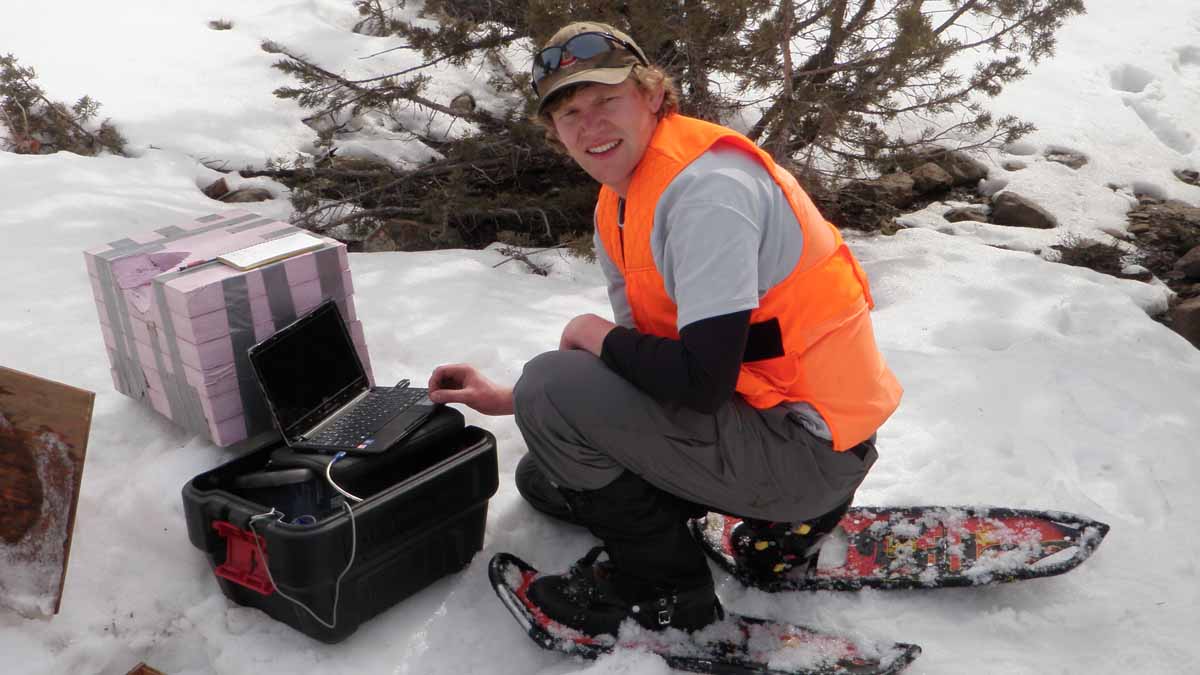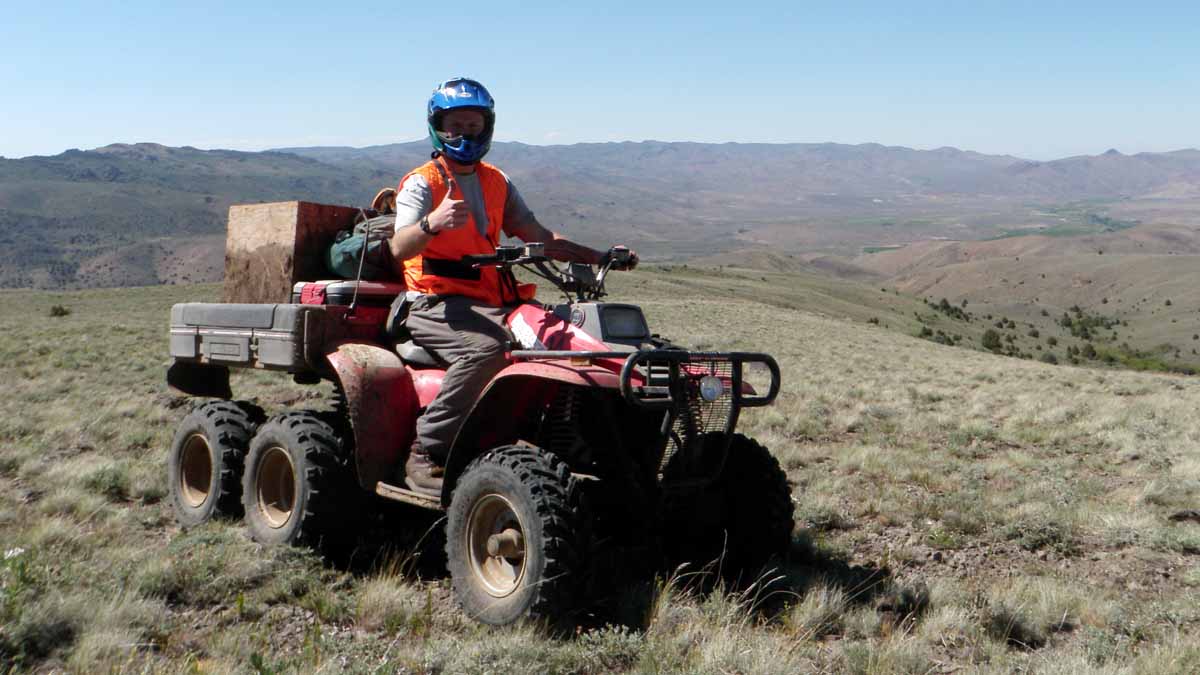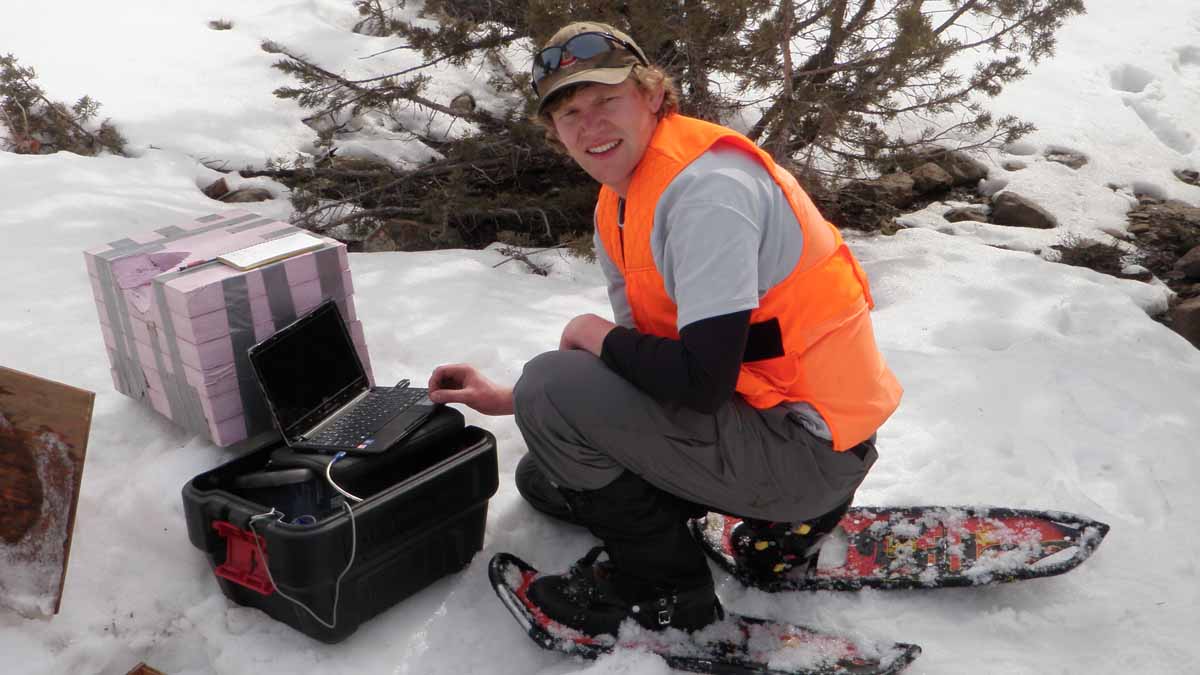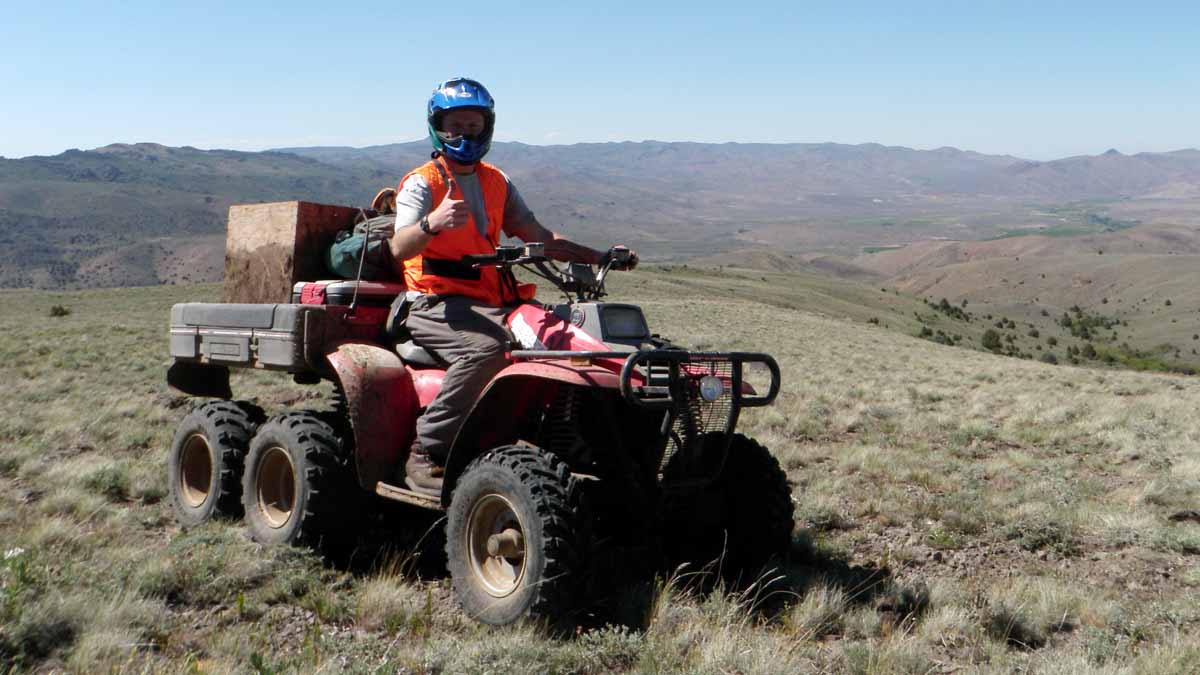Interdisciplinary Water Scientist Aims to Improve Health of Northwest Forests
Alumnus hosts workshops and creates forest thinning simulations for landowners
Ryan Niemeyer fights potentially disastrous wildfires by deleting trees.
The University of Idaho alumnus creates computer simulations to assess forest thinning — selectively removing trees to reduce the density of overgrown forests — in the Pacific Northwest.
Now a postdoctoral researcher at the University of California, Santa Barbara, Niemeyer is the ecohydrologist on an interdisciplinary team that explores forest thinning as a method to improve forests’ resilience in the face of wildfire. The work involves computer modeling, conducting workshops with land managers about forest thinning and deploying surveys to gauge potential change in management style; i.e., whether forest owners would be willing to introduce thinning after learning more about the practice.
“The fact that I did a lot of outreach and social science surveys for my Ph.D. fits right into the work I’m doing now,” said Niemeyer, an alumnus of U of I’s Water Resources Graduate Program. “It’s a direct import of my skillset from my time at the University of Idaho.”
Niemeyer’s graduate work started with sagebrush. Originally from Omak, Washington, he graduated from U of I in 2015, where he participated on a research team known simply as the Sagebrush Team. This interdisciplinary cohort developed a social-ecological framework for juniper control options on public land in southern Idaho.

Niemeyer said the experience helped him develop as an applied scientist and also credited his doctoral advisor, U of I hydrology Professor Tim Link, in shaping his approach to conducting research while proving solutions on the ground.
“As part of the Sagebrush Team, Ryan integrated a strong science background with stakeholder needs and produced scientific outcomes that have direct management applications,” Link said.
Following graduation, Niemeyer continued to work with interdisciplinary teams on a national level at the University of Washington’s Computational Hydrology Lab — where he helped simulate future streamflow and stream temperature in the Southeast U.S. — before moving to UCSB to work on his current project. He attributes his classes, which encouraged participation from a variety of disciplines, and U of I’s approachable faculty as foundational to his achievements.
The graduate program helped me see my science in a larger context.Ryan Niemeyer
“In the graduate program, you get to know faculty that do similar research as you, but also physical scientists and social scientists and law professors. Science is becoming more interdisciplinary, so I like that you can hear about stream restoration from ‘fish people’ and ‘law people’ while sitting in class; it helped me see my science in a larger context.”
Niemeyer recommends the Water Resources Graduate Program to anyone interested in integrating basic and applied science, tackling natural resource projects with an interdisciplinary approach, and those who want to build a network of Vandals that continue to support and inspire each other beyond the classroom.
Niemeyer’s discusses his current project on Twitter @NwThinning.
Article by Lindsay Lodis, College of Natural Resources
Published in April 2019









